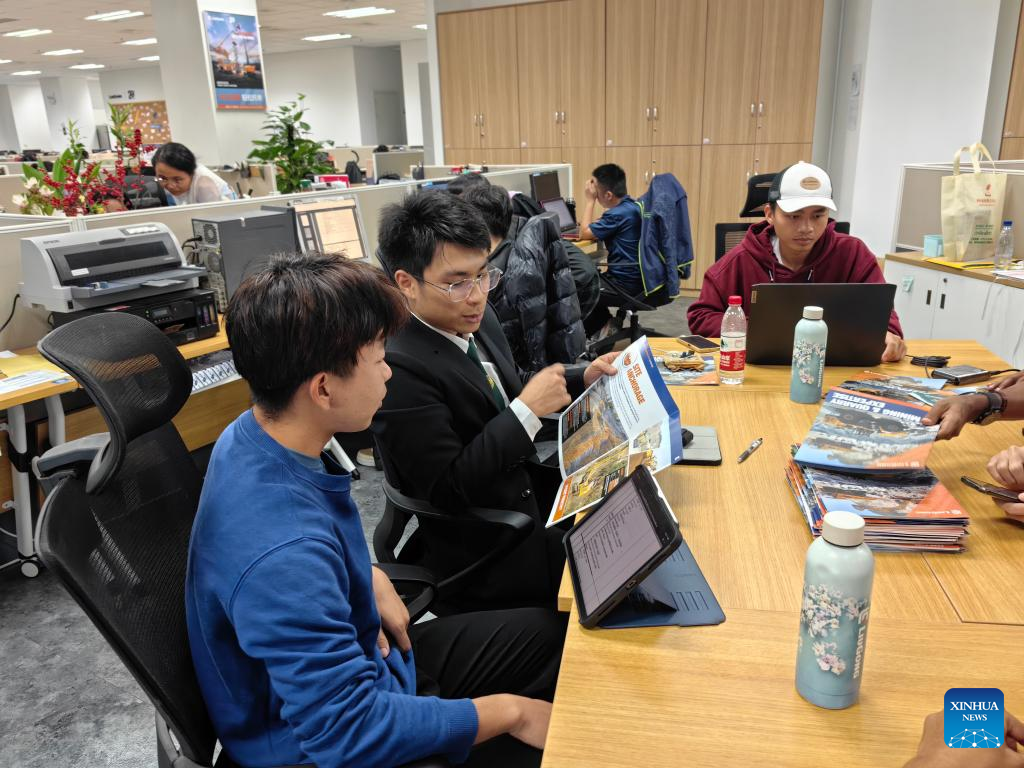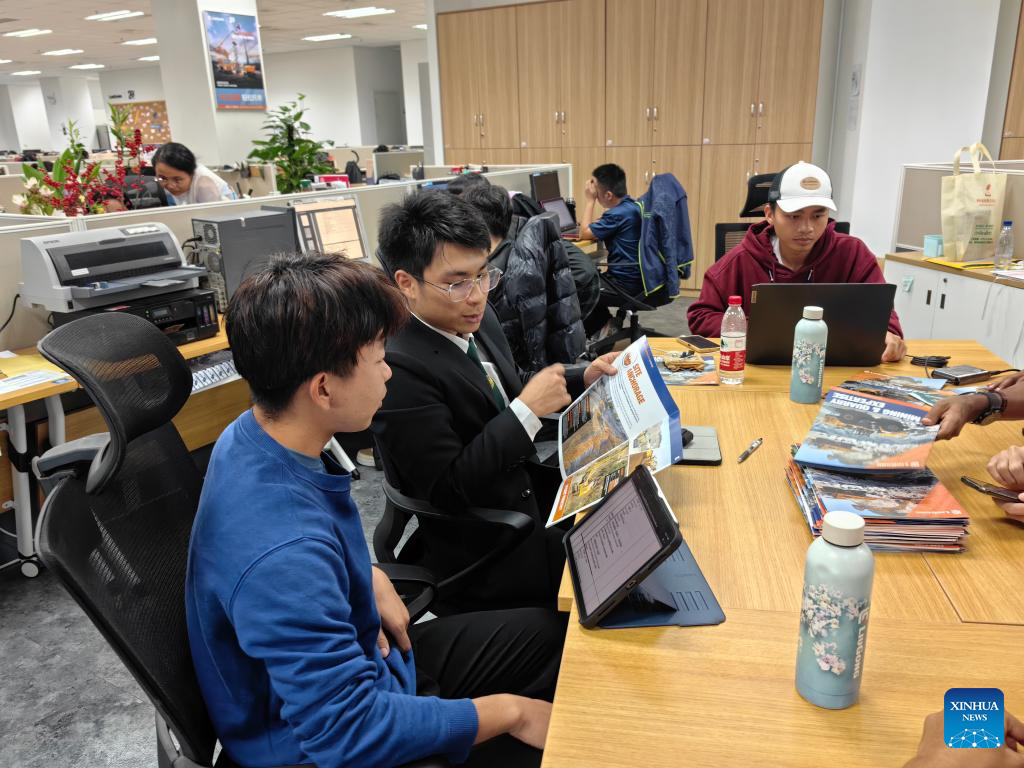
A Thai student (2nd L) discusses the use of mining machinery with his colleagues at the Guangxi Liugong Machinery Co., Ltd. in Liuzhou, south China's Guangxi Zhuang Autonomous Region, Oct. 26, 2023. (Xinhua/Lin Shuting)
by Xinhua writers Nie Xinyu, Lin Shuting
NANNING, Dec. 4 (Xinhua) -- Following teaching videos, groups of Indonesian students have been collaborating to assemble torque converters as part of their coursework at a vocational school in the city of Liuzhou, south China's Guangxi Zhuang Autonomous Region.
They began to study mechanics at the Liuzhou Vocational & Technical College in September and will further their training at Guangxi Liugong Machinery Co., Ltd. They are looking forward to prospective employment opportunities within Liugong's Indonesian subsidiary after graduation.
Industrial cooperation between China and Southeast Asia has deepened in recent years. China's advancing research and technology have brought increasing demand for a diverse pool of multinational professionals, and many people from Southeast Asia seek technical training that aligns with global standards. This synergy has created a mutually beneficial scenario, breaking down national, cultural and language barriers.
In 2022, Guangxi Liugong Machinery Co., Ltd. and the Liuzhou Vocational & Technical College began to collaborate with some overseas institutes to train technical talent in engineering machinery. This cooperation not only addresses the demand for skilled overseas talent among enterprises, but also contributes employment opportunities for young people in ASEAN member countries.
A college-enterprise cooperation project in Thailand, for example, has successfully trained over 20 highly skilled professionals, seven of whom have completed internships at Liugong and will work at its overseas subsidiaries. Over 70 percent of the staff currently working at Liugong's overseas subsidiaries are local employees.
"Our training covers everything related to our equipment, from maintenance to operations, and all necessary theories are explained clearly," said Peng Zhifeng, a technical training expert at Liugong.
Peng has observed a strong eagerness to learn among his overseas students. Many workers, who had never received theoretical education despite working in car repairs for years, said they were "very moved" after participating in the training, according to Peng.
He highlighted the universality of the skills the trainees learnt, noting that they are not limited to working at Liugong and can contribute their expertise to other companies.
Somporn Pandam, deputy secretary general of Vocational Education Commission of Thailand's Ministry of Education, said that vocational education is of great significance to national development. Recognizing the professionalism, leadership experience and forward-thinking approach of China's vocational education, he expressed confidence that it would offer Thai students valuable language skills and career prospects.
The cooperation between vocational education institutions and enterprises will make Thailand's vocational education more adaptable to global market demand, help Thailand cultivate more outstanding talent, and enhance the employment competitiveness and salaries of young Thai people, he said.




 A single purchase
A single purchase









